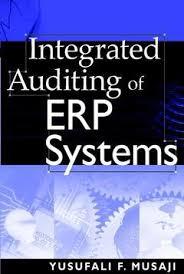


Exercise 2-21 (Algorithmic) (LO. 3, 4) In 2020, Henry Jones (Social Security number 123-45-6789) works as a freelance driver, finding customers using various platforms like Uber and Grubhub. He is single and has no other sources of income. In 2020, Henry's qualified business income from driving is $118,000. Assume Henry takes the standard deduction of $12,400. Click here to access the 2020 individual tax rate schedule to use for this problem. Assume the QBI amount is net of the self-employment tax deduction. a. Compute Henry's QBI deduction and his tax liability for 2020. QBI deduction: $ Tax liability (round to the nearest dollar): $ b. Complete Henry's 2020 Form 8995 (Qualified Business Income Deduction Simplified Computation). Enter all amounts as positive numbers. Internal Revenue Service to www.lrs.gov/Form8995 for Instructions and the latest Inform Name(s) shown on return Henry Jones Your taxpayer identification number 123-45-6789 Note: You can claim the qualified business income deduction only if you have qualified business income from a qualified trade or business, real estate investment trust dividends, publicly traded partnership income, or a domestic production activities deduction passed through from an agricultural or horticultural cooperative. See instructions. Use this form if your taxable income, before your qualified business income deduction, is above $ 163,300 ($326,600 if married filing jointly), or you're a patron of an agricultural or horticultural cooperative. (b) Taxpayer (c) Qualified business 1 (a) Trade, business, or aggregation name identification number income or loss) i Henry Jones Transportation 123-45-6789 iv V 2 Total qualified business income or (loss). Combine lines li through 1v, column (c).. 2 3 Qualified business net (loss) carryforward from the prior year... 3 ( 4 Total qualified business income. Combine lines 2 and 3. If zero or less, enter-O-... 4 5 Qualified business income component. Multiply line 4 by 20% (0.20)... 5 6 Qualified REIT dividends and publicly traded partnership (PTP) income or (loss) (see instructions) 6 7 ( 7 Qualified REIT dividends and qualified PTP (loss) carryforward from the prior year.. 8 Total qualified REIT dividends and PTP income. Combine lines 6 and 7. If zero or less, enter -0- 8 9 REIT and PTP component. Multiply line 8 by 20% (0.20) 9 10 Qualified business income deduction before the income limitation. Add lines 5 and 9 10 11 Taxable income before qualified business income deduction ... 11 12 Net capital gain (see instructions) 12 13 Subtract line 12 from line 11. If zero or less, enter-O- 13 14 Income limitation. Multiply line 13 by 20% (0.20) 14 15 Qualified business income deduction. Enter the lesser of line 10 or line 14. Also enter this amount on the applicable line of your return 15 16 Total qualified business (loss) carryforward. Combine lines 2 and 3. If greater than zero, enter -O- 16 17 Total qualified REIT dividends and PTP (loss) carryforward. Combine lines 6 and 7. If greater than zero, enter -0-.......... 17 SingleSchedule X If taxable income is: But not Over- over- of the amount Head of householdSchedule Z If taxable income is: But not Over- over- The tax is: of the amount The tax is: over- over- $ 0 $ 9,875 ......... 10% $ 0 $ 0 $ 14,100 ......... 10% $ 0 9,875 40,125 $ 987.50 + 12% 9,875 14,100 53,700 $ 1,410.00 + 12% 14,100 53,700 40,125 85,525 4,617.50 + 22% 40,125 85,500 6,162.00 + 22% 53,700 85,500 85,525 163,300 14,605.50 + 24% 85,525 163,300 13,158.00 + 24% 85,500 207,350 33,271.50 + 32% 207,350 31,830.00 + 32% 163,300 207,350 518,400 163,300 207,350 518,400 163,300 207,350 47,367.50 + 35% 163,300 207,350 518,400 518,400 45,926.00 + 35% 518,400 156,235.00 + 37% 154,793.50 + 37% 518,400 Married filing jointly or Qualifying widow(er) - Schedule Y-1 Married filing separatelySchedule Y-2 If taxable income is: Over- But not of the amount over- If taxable income is: Over- But not over- of the amount over- over- The tax is: The tax is: $ 0 $ 19,750 ......... 10% $ 0 $ 0 ......... 10% $ 0 $ 9,875 40,125 19,750 80,250 $ 1,975.00 + 12% 19,750 $ 987.50 + 12% 9,875 9,875 40,125 80,250 85,525 4,617.50 + 22% 40,125 171,050 326,600 9,235.00 + 22% 29,211.00 + 24% 66,543.00 + 32% 80,250 171,050 171,050 85,525 14,605.50 + 24% 163,300 207,350 414,700 326,600 163,300 33,271.50 + 32% 326,600 414,700 85,525 163,300 207,350 311,025 622,050 94,735.00 + 35% 414,700 207,350 311,025 47,367.50 + 35% 622,050 167,307.50 + 37% 622,050 311,025 83,653.75 + 37%









